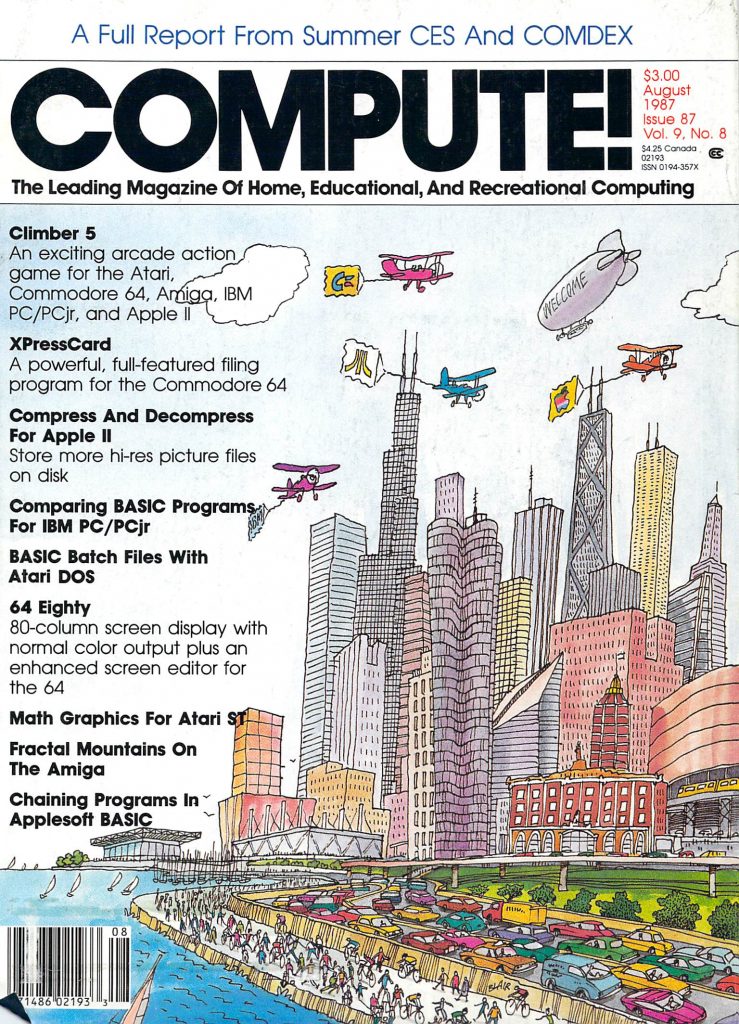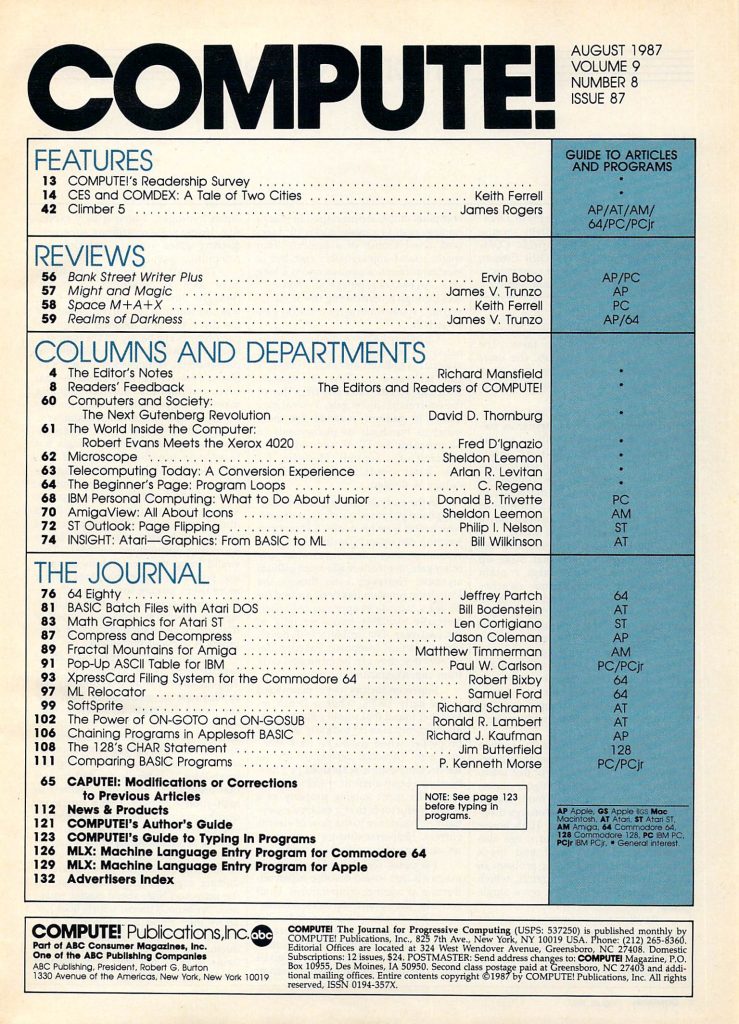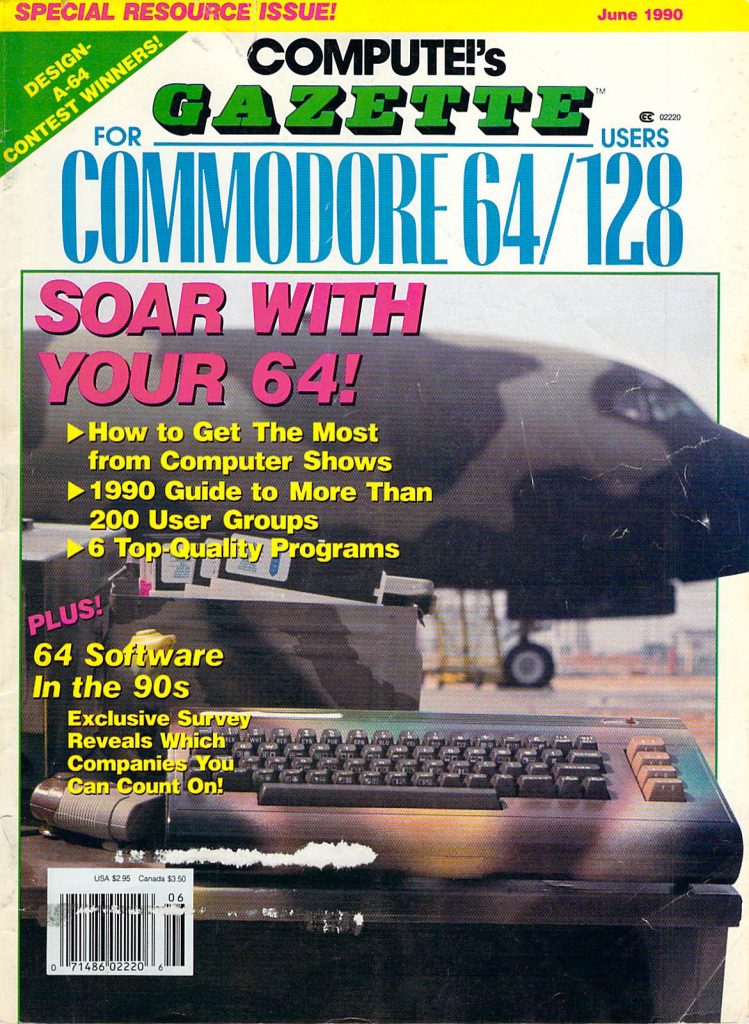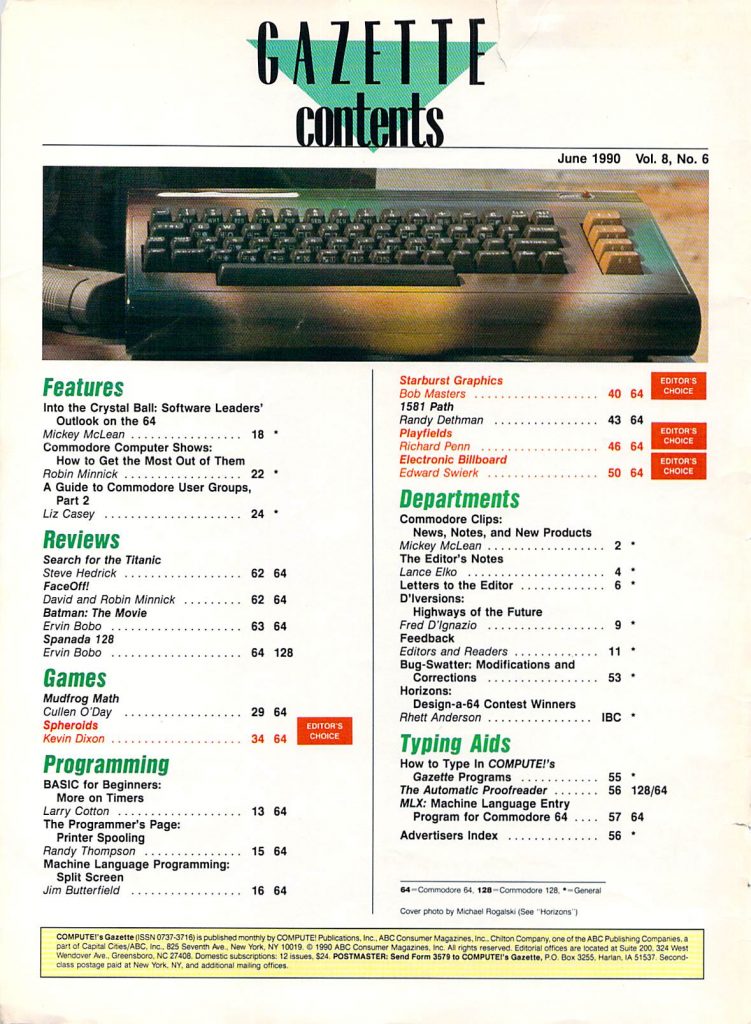
- Tag Archives Commodore 64
-
-
 Compute! (August 1987)
Compute! (August 1987)
Compute! was a multiformat magazine that covered a variety of popular machines. It was one of the better magazines in this category, especially if you wanted something more home computer oriented and a little less technical than Byte. The August 1987 issue includes:
Features
- Compute!’s Readership Survey – A survey for readers that asks questions like what kind of computer you use, what kind of applications, etc. This was used in part to determine coverage in future issues.
- CES and COMDEX: A Tale of Two Cities – Comparing the Consumer Electronics Show in Chicago with COMDEX in Atlanta. Both were big shows for electronics and computer software and hardware.
- >Climber 5 – A type in game for the Commodore 64, Atari, Amiga, Apple II, and PC in which you must climb to the top of a building to retrieve a baseball while avoiding various obstacles.
Reviews
- Bank Street Writer Plus – A word processor for the Apple II line and the IBM PC.
- Might and Magic – The classic fantasy RPG reviewed here for the Apple II.
- Space M+A+X – A simulation in which you must make money operating a space station for the IBM PC.
- Realms of Darkness – Another role-playing game, this one from Strategic Simulations (SSI) for the Apple II and Commodore 64.
Columns and Departments
- The Editor’s Note – Recent advancements in superconductivity and its implications for computing.
- Readers’ Feedback – Readers write in about the future of 5.25″ disks, checking the CAPS key on the Atari 130XE, the importance of saving a typed-in program before running it, upgrading an Amiga CPU, and more.
- Computers and Society: The Next Gutenberg Revolution – Desktop publishing becomes more affordable with the introduction of Atari’s laser printer for the ST.
- The World Inside the Computer: Robert Evans Meets the Xerox 4020 – A look at a new printer from Xerox featuring ink jet technology.
- Microscope – A look at IBM’s new PS/2 line (an their marketing), and some comparisons with the Atari ST and Amiga.
- Telecomputing Today: A Conversion Experience – Issues converting an old MacWrite disk to a new system with a utility download coming to the rescue.
- The Beginner’s Page: Program Loops – A look at GOTO, FOR-NEXT, and WHILE-END loops in BASIC.
- IBM Personal Computing: What to Do About Junior – The merits of upgrading a PCjr (or lack thereof) vs. getting a whole new PC.
- AmigaView: All About Icons – Creating your own icons.
- ST Outlook: Page Flipping – A tutorial for flipping between multiple display screens.
- INSIGHT: Atari – Graphics: From BASIC to ML – A look at how Atari BASIC converts graphics commands to machine language.
The Journal
- 64 Eighty – A type-in program that will give you an 80-column display on the Commodore 64. A similar software trick was used in a terminal program I used back in the day. It’s not as high quality as a genuine 80-column displays (the C64s native display is 40 columns) but it was pretty good.
- BASIC Batch Files with Atari DOS – How to execute BASIC commands (or other things) upon startup.
- Math Graphics for Atari ST – A couple of type-in graphics demos for the ST.
- Compress and Decompress – A couple of type-in utilities for compressing and decompressing high-res graphics files on the Apple II.
- Fractal Mountains for Amiga – A type-in program that will generate fractal graphics on the Amiga.
- Pop-Up ASCII Table for IBM – A type-in utility that runs in the background and will give you a pop-up ASCII table on a keypress.
- XpressCard Filing System for the Commodore 64 – A type-in database program for the C64.
- ML Relocator – A type-in machine language utility that will let you move ML programs around in memory that normally need to use the same memory space.
- SoftSprite – A type-in machine language routine that adds commands to BASIC that allow you to quickly move shapes around the screen.
- The Power of ON-GOTO and ON-GOSUB – A tutorial for using the conditional ON-GOTO and ON-GOSUB commands in BASIC on the Atari (and most other machines with BASIC).
- Chaining Programs in Applesoft BASIC – A tutorial for calling one program from another.
- The 128’s CHAR Statement – A detailed look into the BASIC CHAR statement on the Commodore 128 by Jim Butterfield.
- Comparing BASIC Programs – A type-in BASIC program for the PC that will compare two BASIC programs and report any differences. So basically a diff program for BASIC.
- News and Products – Life Simulation 100 is a sim of possible consequences based on various choices; Diskette Manager Plus 1.1 and Diskette Manager II disk manager for the PC; Time Scrolls for the Mac reports on what happened the day you were born; Up Periscope and Sentry games for the Commodore 64; and much more.
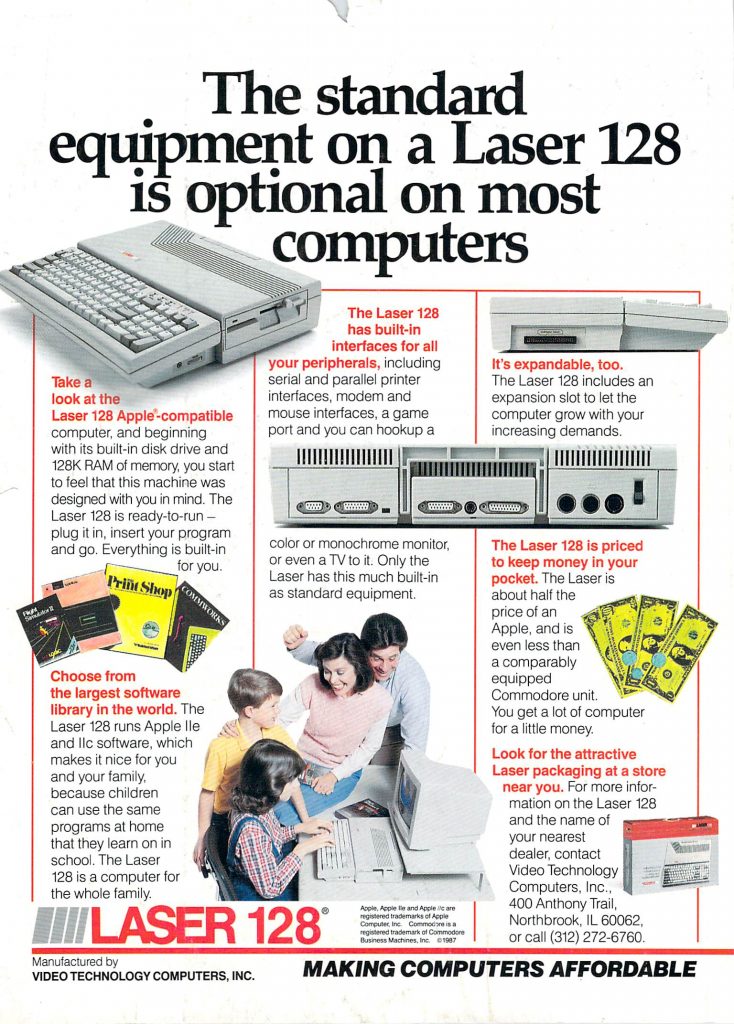
…and more!
-
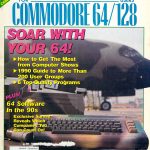 Compute!’s Gazette (June 1990)
Compute!’s Gazette (June 1990)
Compute!’s Gazette was Compute!’s Commodore 64 spin-off magazine. It was one of the most popular Commodore 64 magazines but the June 1990 issue would be the last. However, it would continue on as a disk only publication for another 5 years. This issue includes:
Features
- Into the Crystal Ball: Software Leaders’ Outlook on the 64 – Despite its age, some publishers still report consistent sales including Virgin Mastertronic, SportsTime Computer Software, SSI, and others. However, by 1991 the game market for the C64 has pretty much collapsed with the last two major releases (in the U.S. anyway) occurring that year (Ultima VI and The Simpsons).
- Commodore Computer Shows: How to Get the Most out of Them – A guide to attending computer shows along with a list of upcoming Commodore related shows including Commodore/Amiga Users Fair, World of Commodore/Amiga (Chicago), and World of Commodore/Amiga (Toronto).
- A Guide to Commodore User Groups, Part 2 – The second part of Gazette’s annual list of user groups.
Reviews
- Search for the Titanic – This game from Capstone Software simulates the search for the Titanic.
- FaceOff! – The classic hockey game from Gamestar.
- Batman: The Movie – This Data East game is one of the few good games that are based on a movie.
- Spanada 128 – A Spanish to English translator exclusively for the Commodore 128.
Games
- Mudfrog Math – A type-in educational math game for the Commodore 128.
- Spheroids – A type-in game for the C64 in which you must collect spheres and hurl them at your opponent across uneven terrain.
Programming
- BASIC for Beginners: More on Timers – The second part of a series are creating accurate timers on the Commodore 64 in BASIC.
- The Programmer’s Page: Printer Spooling – A way to spool ASCII files from disk to the printer without tying up the computer.
- Machine Language Programming: Split Screen – A tutorial on creating a split screen and controlling each screen separately.
- Starburst Graphics – A type-in machine language program for creating high resolution Commodore 64 graphics.
- 1581 Path – A short program that allows you to access partitions on the 1581 drive similar to MS-DOS subdirectories.
- Playfields – A type in program for the Commodore 64 that allows you to create animation similar to Amiga’s dual-playfield video mode.
- Electronic Billboard – A type-in program for creating vertically scrolling messages on the Commodore 64.
Departments
- Commodore Clips – Lucasfilm offers special deal on Indiana Jones and the Last Crusade VHS and game combo, Virgin Mastertronic releases Mega Pack collection of ten games, QuantumLink offers downloadable graphics, new C64 game from Japan called Curse of Babylon, and more.
- The Editor’s Notes – Comments on the 1989 Gazette Readership Survey and recent changes to the magazine.
- Letters to the Editor – Letters from readers about a Commodore 64 TV appearance, Commodore 64 BBSes, Speedscript, genealogy software, and more.
- D’Iversions: Highways of the Future – Predictions of the future of computing including the combination of computer, TV, stereo, compact discs, and telephone.
- Horizons: Design-a-64 Contest Winners – The results of a competition involving custom Commodore 64 mods. One can be seen on the cover.

…and more!


